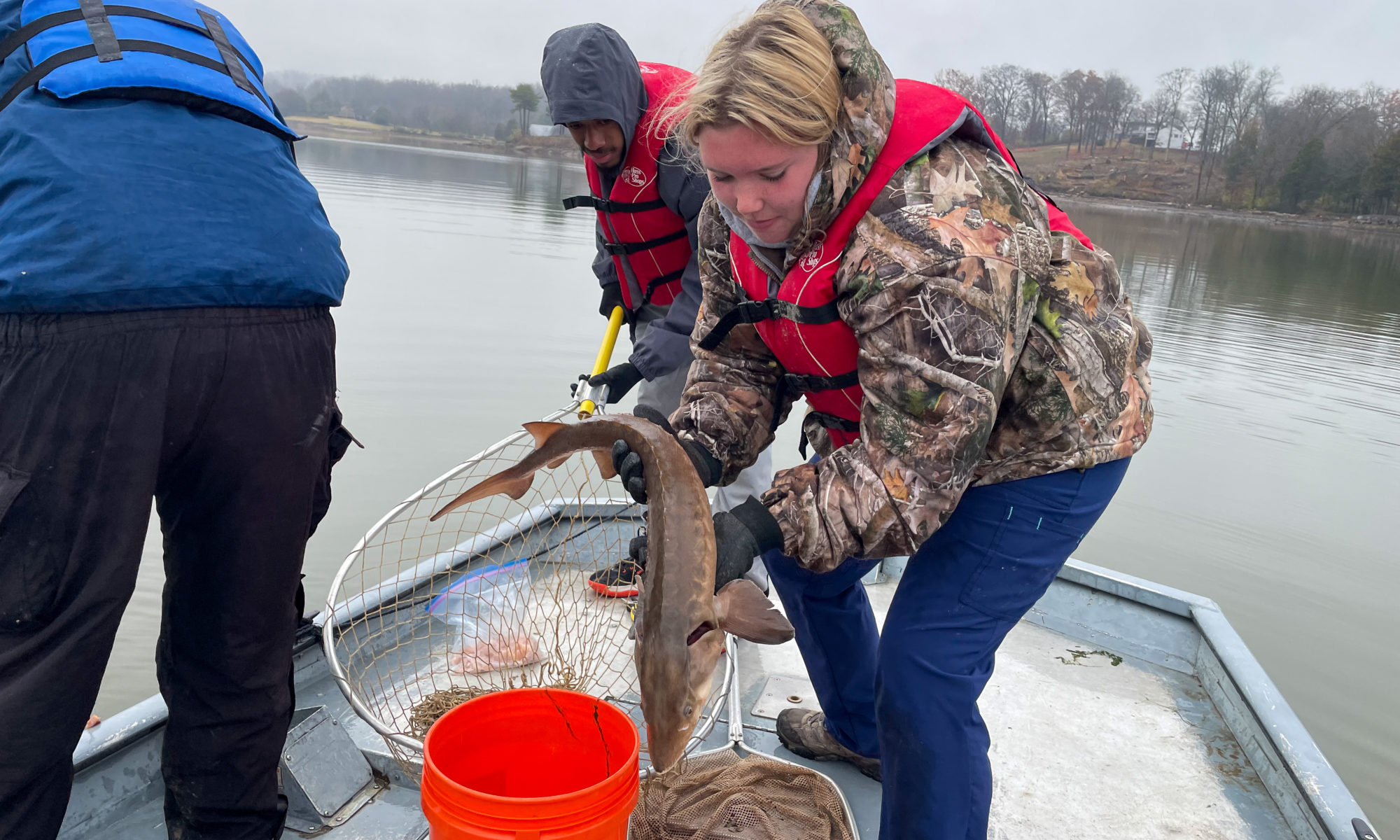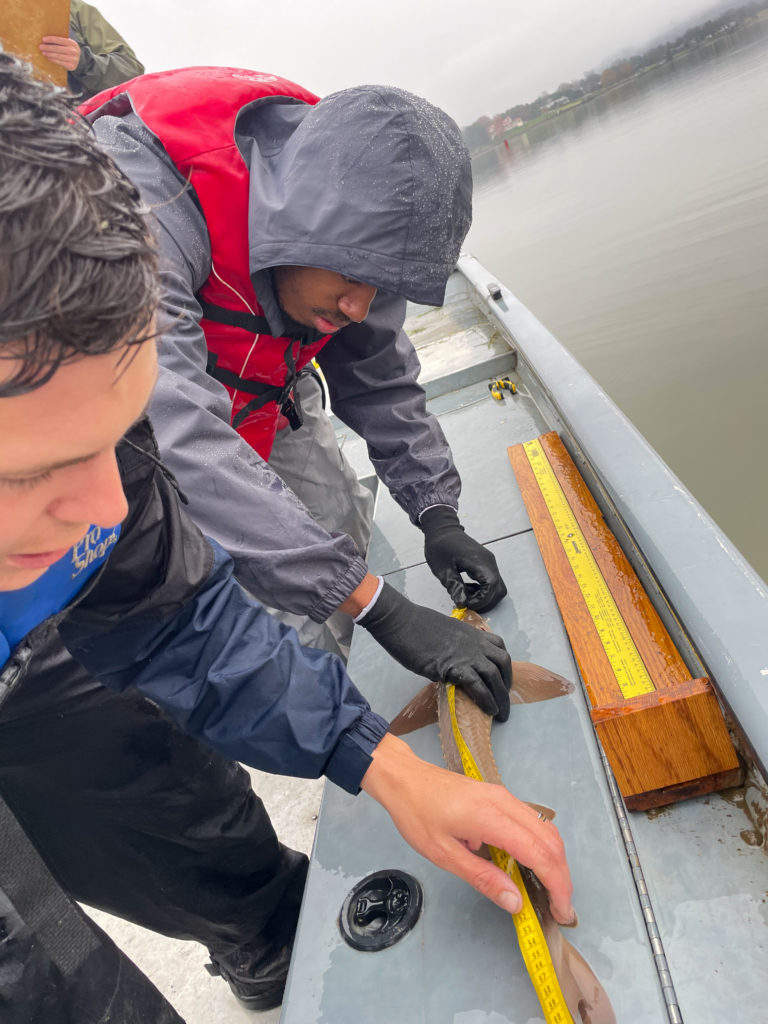
LOUISVILLE, Tenn. — Several students braved the rainy conditions on Fort Loudoun Lake Dec. 6-8 to help with Lake Sturgeon restoration efforts.
The fish is listed as endangered in Tennessee and other states. To reintroduce it to the region, the Southeastern Lake Sturgeon Working Group formed in 1998.
Each December, the group conducts an annual sampling of the lake sturgeon population along the Tennessee and Cumberland River basins. The University of Tennessee covers Fort Loudoun Lake.
Crews set up trot lines, which contain about 50 hooks, bait them and leave them overnight. They return the next day and check the lines for lake sturgeon.
“If we catch one, we will take a fin clip for genetics, which we send to some U.S. Fish and Wildlife folks,” Augustin “Gus” Engman, Forestry, Wildlife and Fisheries assistant professor, said. “We check the sturgeon for what’s called a PIT tag, which is kind of like a microchip that you put in dogs.”
PIT is short for passive integrated transponder tags. If a fish has one, the group knows the lake sturgeon has been captured previously. The group puts in a PIT tag if the fish does not have one. The capture data can later help the group estimate the lake sturgeon population size.
The group consists of the University of Tennessee at Knoxville, the U.S. Fish and Wildlife Service, the Tennessee Wildlife Resources Agency and several other organizations. Engman also offers undergraduate students the opportunity to sign up for sampling the fish.

“Everyone loves doing it cause it’s a really big fish. People say it looks like a dinosaur,” Engman said.
Engman adds it’s a rare experience for students to sample a fish labeled as endangered in some states.
The UT Department of Forestry, Wildlife and Fisheries is part of the Herbert College of Agriculture, UT AgResearch and UT Extension at the University of Tennessee Institute of Agriculture. The curricula focus on a mastery learning approach, emphasizing practical, hand-on experiences. FWF’s faculty, staff and students conduct research and extension that advances the science and sustainable management of our natural resources. For more information, visit fwf.tennessee.edu.
Through its mission of research, teaching and extension, the University of Tennessee Institute of Agriculture touches lives and provides Real. Life. Solutions. utia.tennessee.edu
